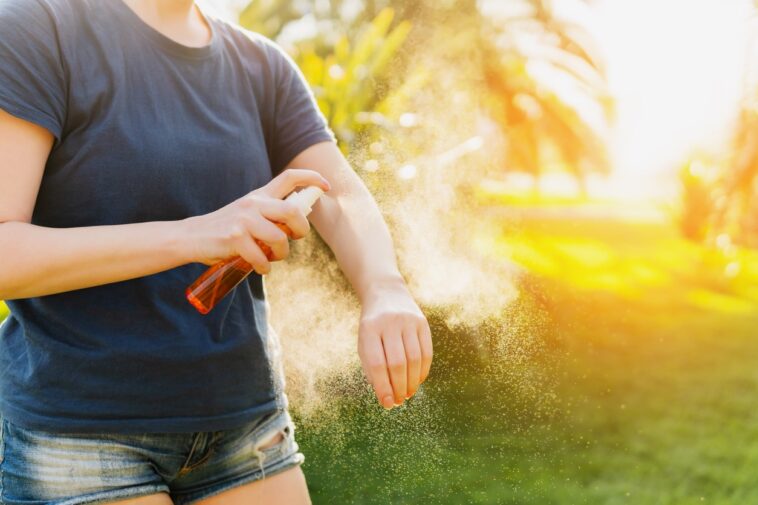Sunny days encourage the proliferation of insects of all kinds. However, whether in your vegetable garden, your garden or your interior, we never like to be visited by hordes of flies, a colony of ants or very invasive hungry mosquitoes. For a quiet summer, there is no need to opt for insecticides based on toxic chemicals. Insecticide or preventative repellent will work just as well! Here are seven recipes for natural repellents with essential oils to apply on you or in your home to repel unwanted harmful insects. This will save you from a few unpleasant mosquito or bee bites or a potentially dangerous tick bite.
Some insect repellents
1) Repellents against flies, very annoying insects in summer
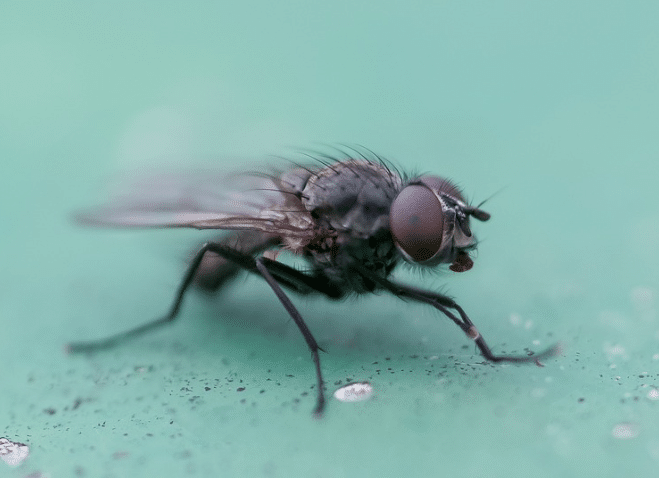
Against flies, you can set up homemade traps. This is the quickest way to remove as much as possible. To scare them away and prevent them from entering your homemix 1/4 teaspoon of lemongrass essential oil and 250 ml of water in a spray bottle. Flies actually hate the smell of lemongrass. You will only have to spray it on the entrance areas (doors and windows). Another effective repellent, dilute in 1 liter of cider vinegar 20 drops of rosemary essential oil, 20 drops of basil essential oil, 20 drops of mint essential oil, 30 ml of olive oil and 15 ml dishwashing liquid! Renew regularly so that the smell remains powerful and repellent. In addition, slide lemons studded with cloves in the rooms where they like to come.
2) Repellents against mosquitoes, these dreaded biting insects
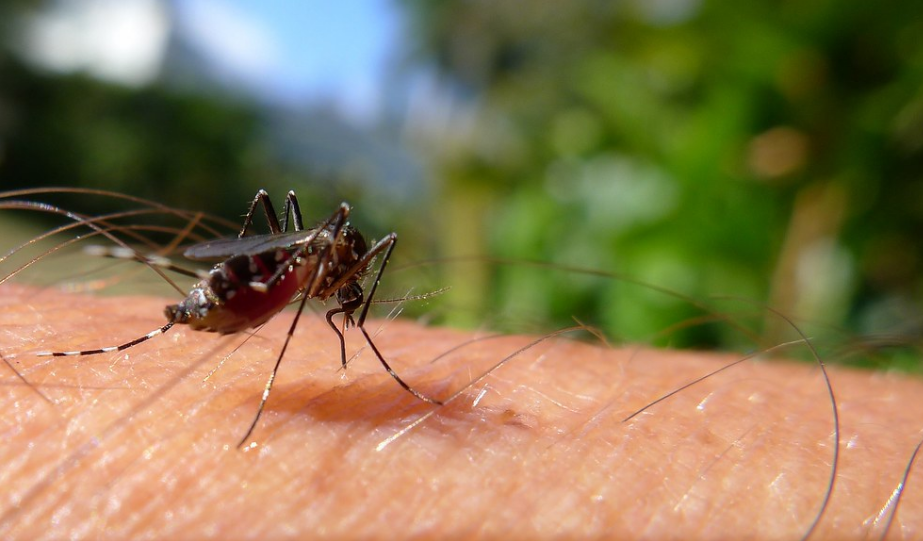
To combat mosquitoes at home or in the garden, it is possible to plant repellent plants around the house or install them on your window sills. Also consider using a skin repellent. The best stinging flying insect repellents consist of 1/6 teaspoon of true lavender essential oil, the same amount of rosemary and cedarwood essential oil as well as 1/2 teaspoon of essential oil lemon eucalyptus. Simply dilute everything in 2 tablespoons of grapeseed oil and 2 tablespoons of vodka. All you have to do is apply everything to the areas exposed to bites (legs, arms, neck, etc.). You can also use one of the repellent essential oils in a diffuser to repel mosquitoes.
3) The spider repellent
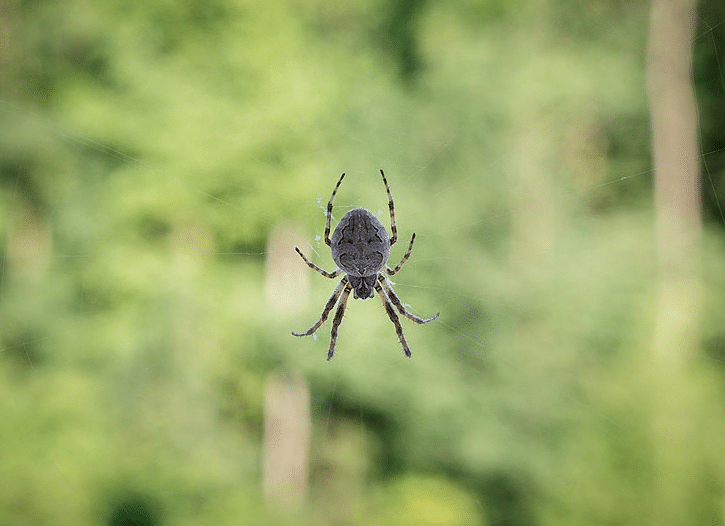
Chestnuts are among the best repellents against spiders and many insects. However, it is not always easy to find them in summer. THE essential oils can then prove valuable ! To use them, dilute 2 drops of lemon essential oil and 2 drops of lemon dishwashing liquid in 250 ml of water or 15 drops of peppermint essential oil, always in 250 ml of water. Using a sprayer, your repellent should be sprayed on entry areas (door threshold, window frames, etc.). You can also put your essence on a porous stone or cotton pads at entry points.
4) An ant repellent
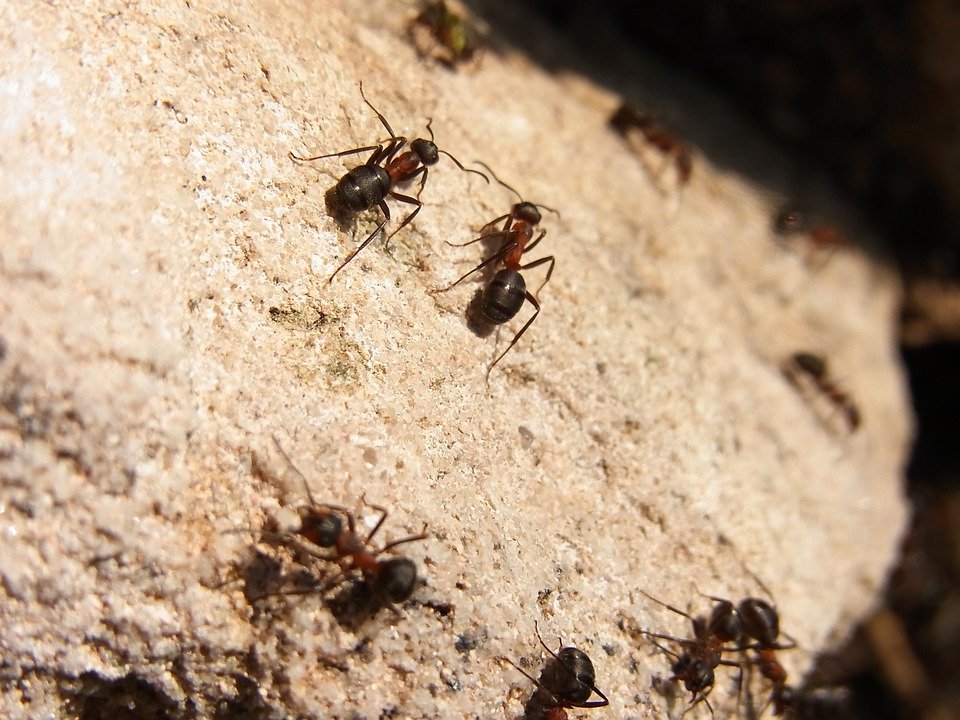
Make a chalk line, spray white vinegar or lemon juice, arrange basil leaves or 5 cent coins… All these solutions are excellent repellents against these little insects. However, these little creatures also fear mint. Also, to prepare a good repellent, mix 1 tablespoon of mint extract with 4 tablespoons of olive oil. Then apply this very effective solution to block insects on window sills, door thresholds, doorframes, etc.
5) An anti-cockroach repellent
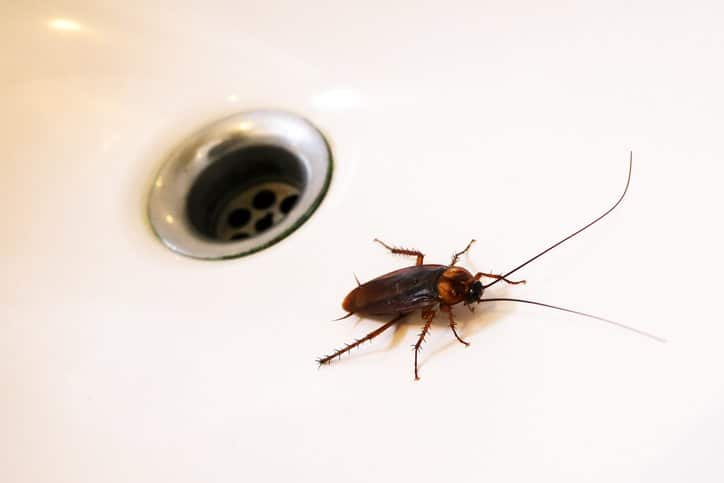
In the event of a large infestation, it will probably be necessary to use a mixture of boric acid and condensed milk to eradicate them. But to drive them away, use a repellent based on mint essential oil (1/4 teaspoon in 250 ml of water). Then, you will need to spray this product on the traffic areas (baseboards, cracks, etc.).
6) The tick repellent recipe
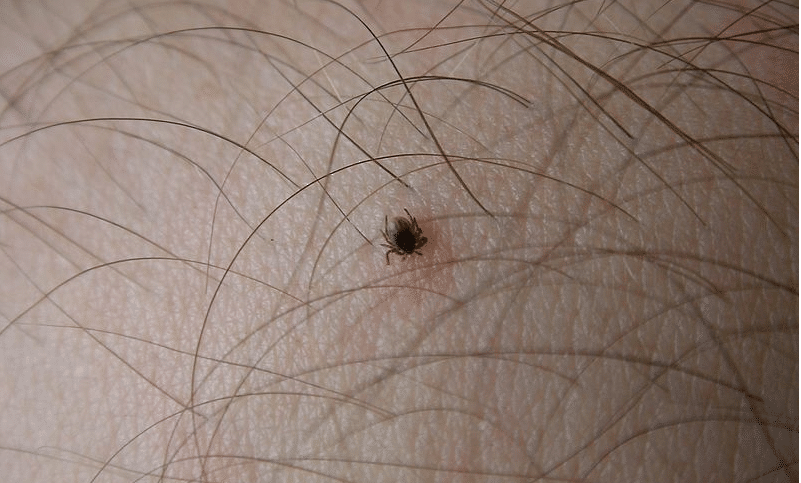
During a walk, do not hesitate to protect yourself with long clothes and high shoes. In addition, you will need inspect every millimeter of skin for you and your pets to prevent ticks from finding their way into your home. The ideal will also be to treat your garden and vegetable patch to prevent ticks. However, the most direct tip remains the skin repellent to apply to areas still exposed (arms, neck, legs). To prepare your tick repellent, mix 1/4 teaspoon of geranium bourbon essential oil with 4 tablespoons of vegetable oil of your choice.
7) And finally, the anti-bee repellent
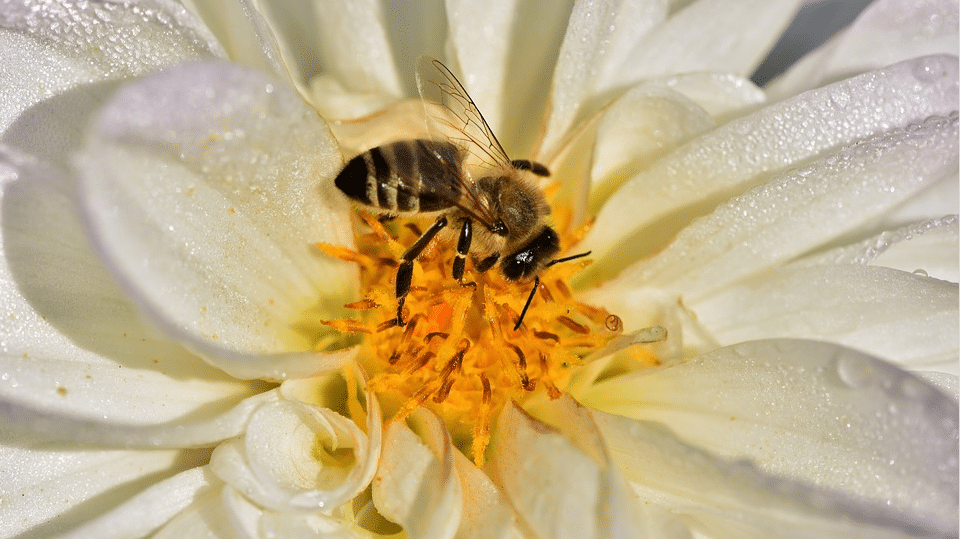
As long as we don’t bother them, bees don’t sting us and are harmless. However, in the event of proliferation, they quickly become numerous, which can be a source of stress and fear, especially among allergy sufferers. To keep these beneficial insects away from you without hurting them, make a repellent using a tablespoon of water and a tablespoon of peppermint essential oil. All you have to do is apply it to your arms, ankles and hair to keep them at bay.
In addition to these repellents, here are additional tips to protect yourself from insects!
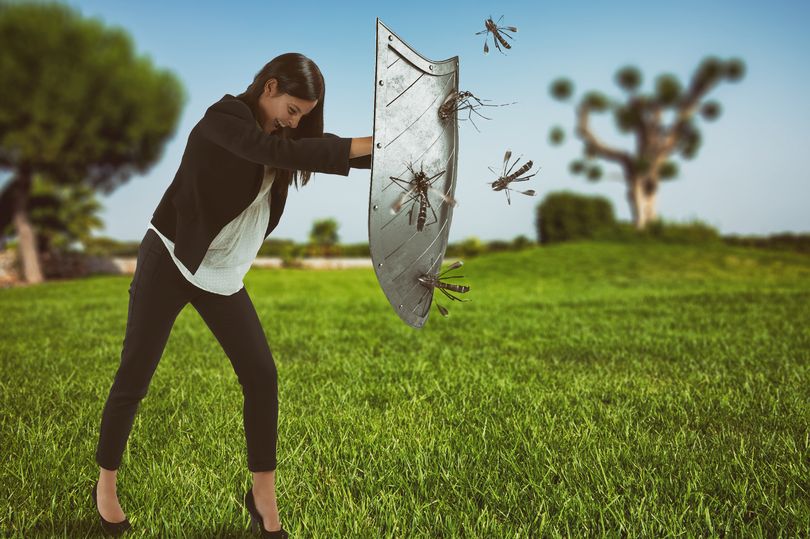
Protecting yourself from insects and their bites is essential, especially in summer or in regions where insects are particularly active. Here are practical and effective tips to avoid insect bites in addition to our repellents:
First of all, wear long-sleeved clothes, long pants, socks and closed shoes to minimize the surface area of exposed skin. Insects also seem attracted to dark colors. Also, favor light or neutral colored clothing. For detailed information on the colors that attract mosquitoes, click here. To avoid suffocating in the heat during a heatwave, opt for light, loose-fitting fabrics. THE clothing made from lightweight cotton, linen or breathable synthetic fabrics can for example be comfortable while covering the skin well. Finally, there are clothes treated with insecticides such as Permethrin, useful especially for areas at risk.
Besides, it is better to avoid odorous hygiene products. Perfumes, aftershave lotion, body cream… All these scented products can attract insects. Therefore, favor unscented products when you are outside. Additionally, insects are attracted to sweat and body odor. SO, take regular showers with neutral soap to reduce the attraction of insects. Finally, change clothes regularly to prevent sweat odors from permeating them.
If you do not want to use essential oil insect repellents or cannot use them (especially a pregnant woman or child), replace these homemade recipes with repellents containing DEET or icaridin (or picaridin, an alternative to DEET that is a little less irritating to the skin).
Good habits and equipment to deal with insects in addition to repellents
First, install a mosquito net on beds, windows and doors to prevent the entry of insects into living spaces. Additionally, eliminate stagnant water around your house, because they are breeding grounds for mosquitoes and provide insects with food. Use fans can also help keep away certain flying insects by bothering them.
If possible, avoid spending time outdoors at dusk and dawn, times when mosquitoes are most active. Finally, avoid areas with lots of dense vegetation or stagnant water which are favorite habitats for insects.


